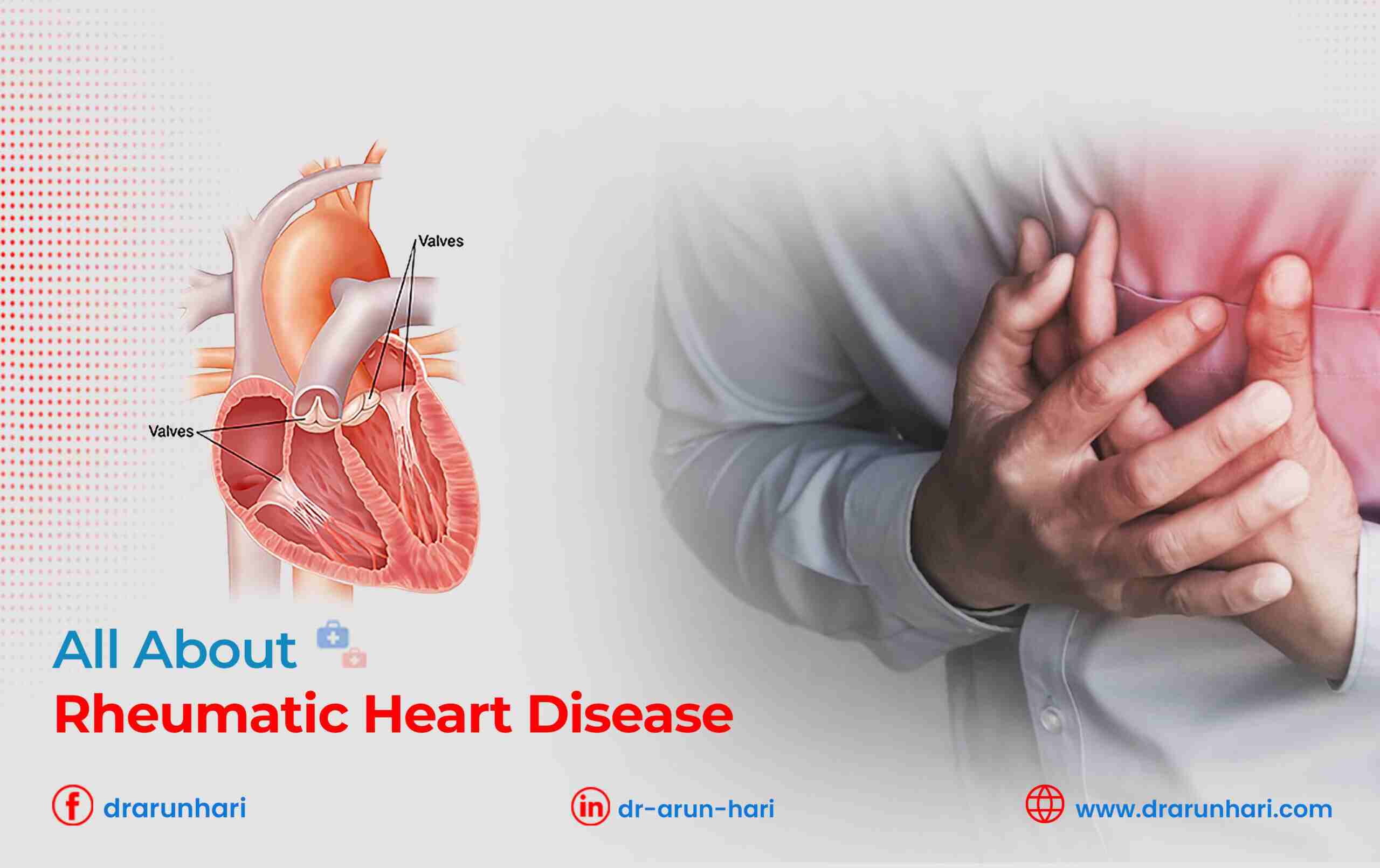Health is that particular outfit, which tends to look different on every individual! So, wear it well!
Rheumatic heart disease (RHD) is a serious condition that affects the heart and its valves, resulting from rheumatic fever, an inflammatory disease caused by untreated strep throat. While it was once a common health problem in developed countries, improved medical care & antibiotic usage have significantly reduced its incidence. However, it still remains a significant health concern in certain parts of the world, especially in low-income regions and developing countries.
What Is It?
RHD is a chronic heart condition that occurs as a complication of rheumatic fever. It develops when the inflammation caused by rheumatic fever affects the heart’s valves, causing them to become damaged or scarred over time. This, in turn, can lead to valve dysfunction and impair the heart’s ability to pump blood efficiently.
Who Can Get RHD?
RHD predominantly affects children and young adults between the ages of 5 years & 15 years. This condition is seen to be more prevalent in areas with limited access to healthcare and where strep throat infections are not adequately treated. Factors like poor living conditions, overcrowding, and malnutrition contribute to the higher incidences of RHD in developing nations.
How Common Is It?
RHD has become less common in industrialized nations due to improved healthcare and the availability of antibiotics. However, it remains a major public health problem in many African, South Asian, and Pacific Island countries, where access to the healthcare facilities is quite limited.
Who Is at Risk?
Individuals who are at a higher risk of developing RHD include those who have had rheumatic fever or recurrent episodes of untreated strep throat infections. Additionally, living in crowded and unsanitary conditions, poor nutrition, and lack of access to healthcare increases the risk. Learn more from a cardiologist in Abu Dhabi for heart disease management.
Symptoms
The symptoms of RHD can vary depending on the severity of valve damage. Common symptoms include the following:
- Shortness of breath
- Fatigue
- Chest pain
- Heart palpitations
- Swelling in the leg/abdomen region (which is also called as edema)
- Fainting or dizziness
Causes
RHD is caused by an immune response to an untreated or inadequately treated streptococcal infection, typically strep throat. When the body tries to fight off the infection, the immune system mistakenly attacks the heart valves, leading to inflammation and subsequent scarring.
Diagnosis
To diagnose RHD, a thorough medical history, physical examination, and various tests are conducted. Doctors may use echocardiography (heart ultrasound), electrocardiogram (ECG/EKG), chest X-rays, and other imaging techniques to assess the heart’s structure and function. Consult an Indian cardiologist in Abu Dhabi for an expert diagnosis of RHD.
Treatment
The treatment of RHD involves managing symptoms, preventing further valve damage, and preventing future episodes of rheumatic fever.
- Antibiotics: Antibiotics are prescribed to treat strep throat promptly, preventing recurrent infections and reducing the risk of further complications.
- Heart Valve Repair: In some cases, if the valve damage is not severe, surgical repair may be an option. During the procedure, the damaged valve is reshaped or repaired to improve its function.
- Heart Valve Replacement: For more severe cases, where the valves are extensively damaged, heart valve replacement surgery may be necessary. In this procedure, doctors replace the damaged valve with a mechanical valve or a biological valve (made from human or animal tissues). Seek expert advice from a heart surgeon in Abu Dhabi for heart valve surgery options.
Prevention
Prevention of RHD involves prompt & appropriate treatment of strep throat with antibiotics. Additionally, public health measures, including improving living conditions and access to healthcare, are crucial in reducing the incidence of rheumatic fever and its complications. Public health efforts, awareness campaigns, and improved access to healthcare remain essential in combating this condition and its associated burden on affected communities.
Outlook for People with RHD
The outlook for individuals with RHD depends on the severity of the valve damage and how well they manage it. With proper medical care, including regular follow-ups, medication, and lifestyle adjustments, many people with RHD can lead relatively normal lives.
Complications
Untreated or poorly managed RHD can lead to serious complications, including heart failure, infective endocarditis (an infection of the heart valves), and stroke.
RHD & Pregnancy
Pregnant individuals with RHD require close monitoring, as pregnancy places additional stress on the heart. Proper prenatal care & management by a specialized healthcare team are essential to ensure a safe pregnancy and delivery.
When to Seek Help?
If you or someone you know experiences symptoms such as shortness of breath, chest pain, swelling, or palpitations, it is crucial to seek immediate medical attention. Early diagnosis & treatment can help prevent further complications and improve the overall prognosis.
Consult with Doctor Arun for Rheumatic Heart Disease
Rheumatic heart disease is a preventable yet significant health issue, particularly in resource-limited regions. Timely treatment of strep throat and appropriate management of rheumatic fever can reduce the incidence of RHD and its complications. You can consult with Doctor Arun and get treated for any RHD symptoms under his able medical guidance.





